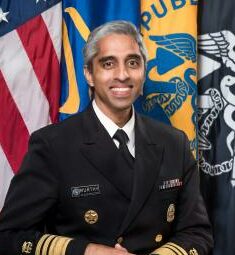
Concern for the mental and physical well-being of people who work in healthcare predates the SARS-CoV-2 pandemic and has perhaps come to a head this summer. Although fewer COVID-19 patients need acute-level care than earlier in the pandemic, hospitals remain full and most are understaffed. The effects of long-term disruption and uncertainty are widespread. The resulting anxiety and ennui are contributing to the “burnout” many healthcare workers are experiencing.
Most of the research and calls-to-action come from within the healthcare community and focus on improving the systems and environmental factors that add stress and risk to the already demanding work of clinicians and staff. At the same time, leaders are calling attention to the broad societal implications of stresses in the healthcare system and asking everyone to help address the problem.
Speaking at Academy Health’s Annual Research Meeting held in Washington, D.C., in June, U.S. Surgeon General Vivek Murthy, M.D., argues that “Health worker burnout is a crisis for all Americans.” He is concerned that if we don’t respond now, the number of people willing to work in healthcare will shrink to a point where care won’t be available for people when they get sick, preventive services will be inadequate to support health, and “we won’t be prepared for the next public health emergency.”
In his comments (which can be heard here) Dr. Murthy emphasizes the public health implications of a dwindling and discouraged workforce. He also points out the number and diversity of people who work across all aspects of healthcare. They are diverse in terms of demographics, the roles they perform and people they serve. Conversations about burnout often focus on doctors and nurses, but all healthcare workers are subject to the conditions and barriers that cause problems, and the effects of burnout extend downstream to us all.
In a Surgeon General’s Advisory released in May, Dr. Murthy observes, “Health workers are our family members, colleagues, and neighbors.” The Advisory recommends five actions members of the public can take to address burnout and “help build a thriving healthcare workforce”:
- Learn to recognize when a health worker you know needs support.
- Protect your health and the health of your family.
- Adhere to local public health guidelines.
- As a patient, be kind to health workers.
Each suggestion is fleshed out with further actions, many of which amount to simple, practical and frankly old-fashioned approaches to taking care of each other, such as sincerely asking people how they are doing, paying attention to warning signs, following public health recommendations, and treating everyone with kindness and respect.





